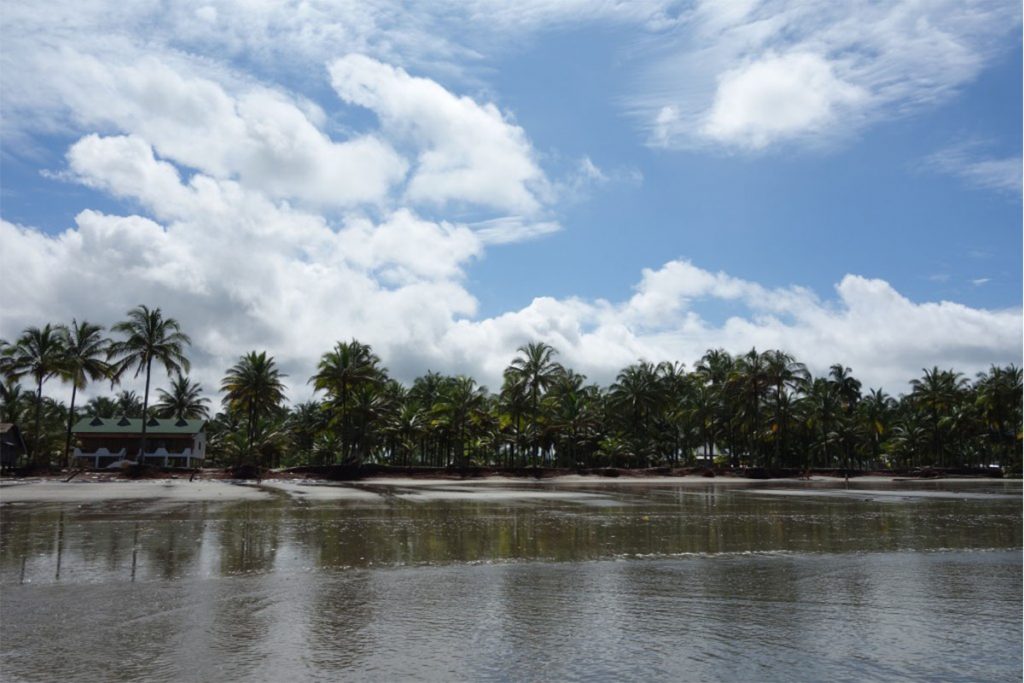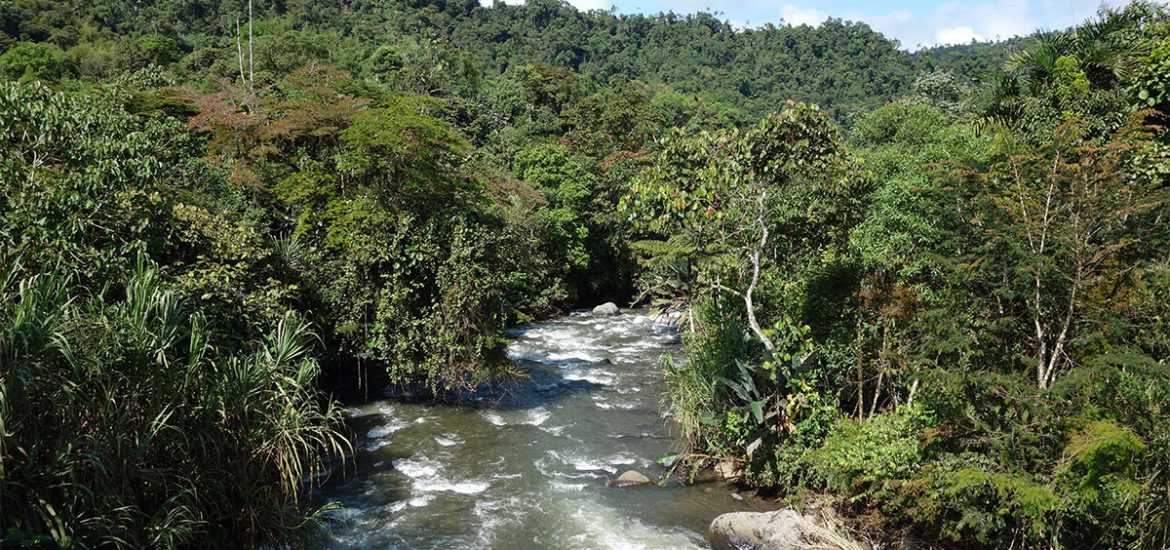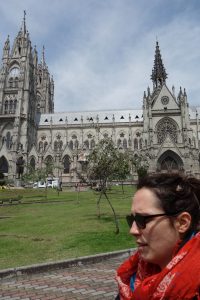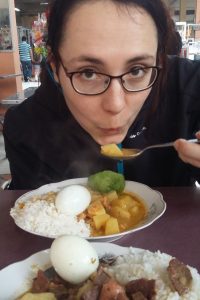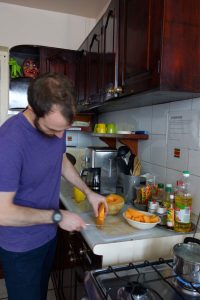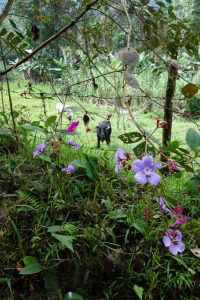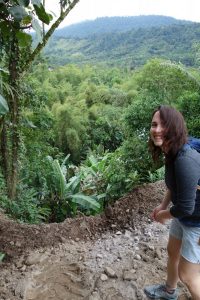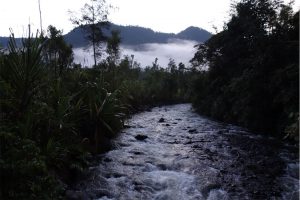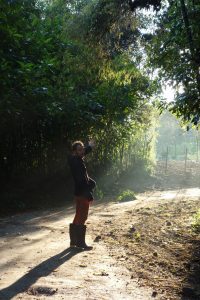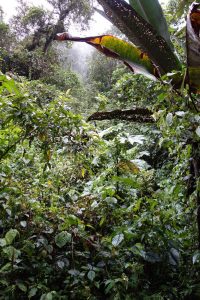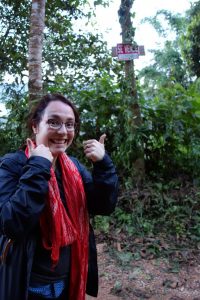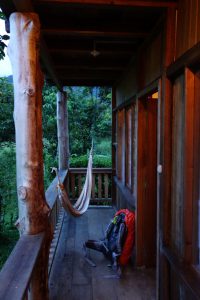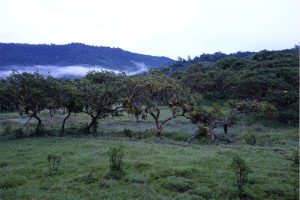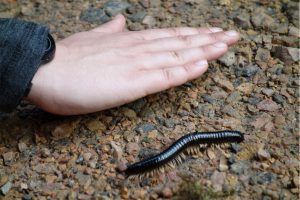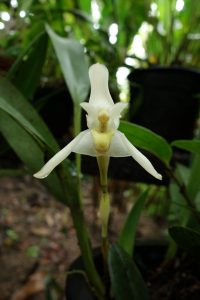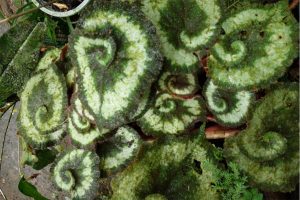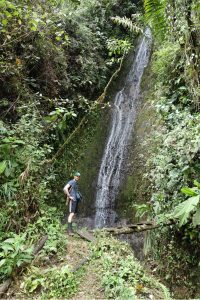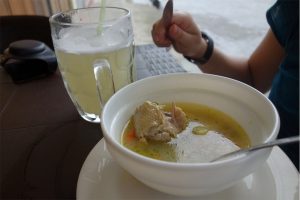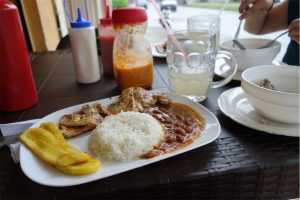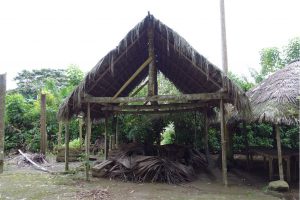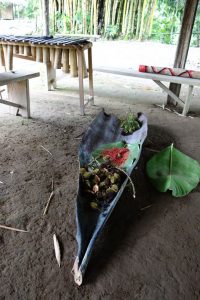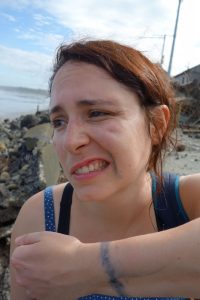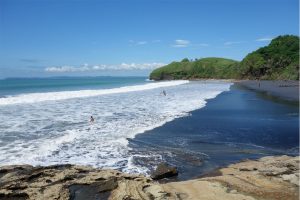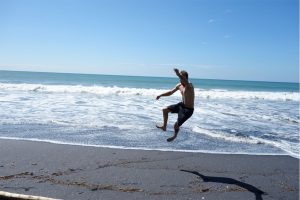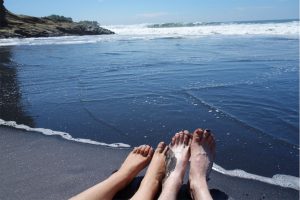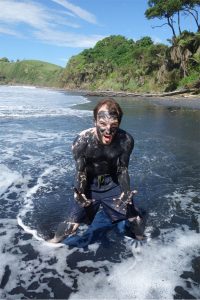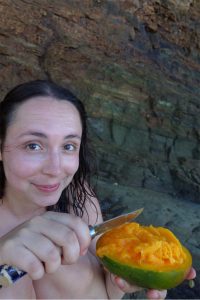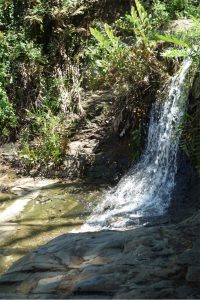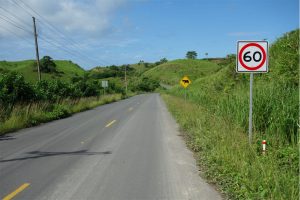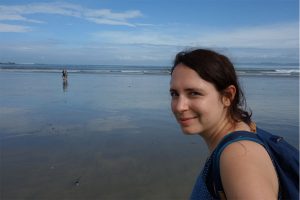De l’Allemagne à Quito
Départ de Duisburg le 28 janvier à 10h (heure allemande) – Arrivée le 29 janvier à 14h (heure équatorienne, soit 20h en France) à notre Hostal en plein centre de Quito. 34 heures de transit pour découvrir le magnifique paysage de la cordillère des Andes.
From the Duisburg, though Frankfurt, Saint Domingo, and Panama, all the way to our hostal in downtown Quito it took 34 hours. Which is what happens when you have more time to spend on a trip that money.
Premier bus, le check-in, de l’attente et encore de l’attente (c’est ce qui arrive quand on décide d’arriver 8h avant l’heure de son embarquement!). 21h arrive et nous montons enfin dans notre avion à escale, car oui ça existe. Nous atterrissons à Saint Domingue à 4h du matin, on nous demande de descendre de l’avion afin de nettoyer l’appareil et changer l’équipage. 1h plustard nous remontons dans le même avion direction Panama City où nous prendons notre dernier vol jusqu’à l’aéroport Mariscal Sucre de Quito. Requinqués par le beau paysage andins, nous entamons notre premier périple dans les méandres du réseau de bus équatorien. En effet, les équatoriens ne semblent pas apprecier les panneaux de signialisation : pour trouver son chemin il faut demander, redemander et encore redemander.
First a bus to Frankfurt airport from Duisburg. We wanted to be sure we didn’t miss our flight. So, we showed up eight hours early and visited the airport. Then walked up the steps to our plane and took off across the Atlantic. We landed in Saint Domingo at four in the morning, and were told polity to get off the airplane, go through security, and sit in the dark quiet airport for an hour. They cleaned the airplane, switched the crew and had the same passengers climbed back on the plane and sit in the same seats. We landed in Panama a nap later and walked around looking at duty free aimlessly while waiting (again) for our flight to Quito. High on a mix of jet lag and the beauty of the surrounding Andes, we had a first adventure with public transportation in Ecuador. Ecuadorians do not appreciate signs. In order to take the right bus in the right direction on must ask, and ask again to find ones way.
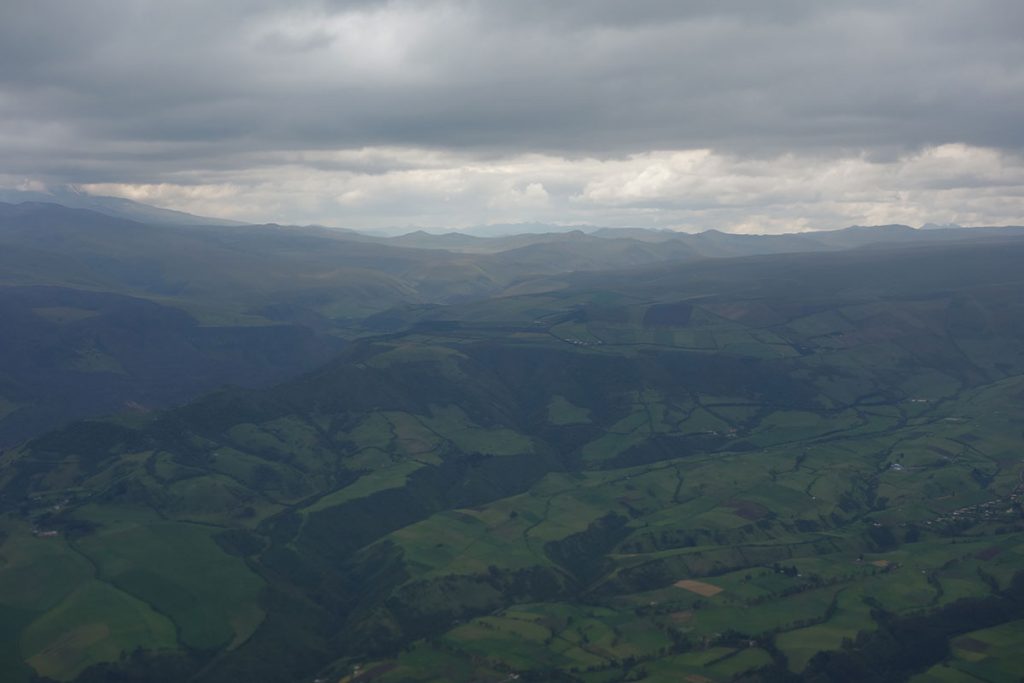
Quito nous voilà
Arrivés à notre hostal, nous nous installons et luttons jusqu’à 21h pour ne pas dormir. Nous avons utilisé pour la première fois notre nouvelle carte premium, fait des courses, et préparés notre premier repas. Nous avons ainsi découvert que ” salsa de tomate” en Equateur c’est du kektchup et non de la sauce tomate comme en Espagne. Nous avons passé trois jours à Quito afin de nous acclimater : décalage horaire, altitude, nouveau continent, nouvelle culture…
Once at our hostel, we tried to keep ourselves busy until nine o’clock. We used our brand new debit card, went shopping, took a walk, and cooked our first meal in South America. Taking in to account that our bodies hadn’t been properly horizontal in 40 hours, we decided to start simple: pasta with tomato sauce. We discovered that although “salsa de tomate” directly translates to “tomato sauce,” it is actually means “really bad generic ketchup.” Unfortunately, neither of us were awake enough to taste any of the individual ingredients before our meal was plated, or notice the very unnatural color of the “tomato sauce.” We ate our ketchup noodles, and went to bed eight o’clock. We stayed in Quito for three days acclimating to the higher altitude, new time zone, brighter sun (getting sunburn though a t-shirt,) and new culture. We ordered food at random and looked it up later to find that it was intestine soup (pretty tasty) or mutton (not so tasty.) We say the president of Ecuador wave from his balcony. And, we bought rubber boots.
Afin d’arriver fin prêt pour notre premier wwoofing, nous avons passé une après-midi à la recherche de botte en caoutchouc. Nous avons visité toutes les quincailleries de la capitale, à chaque fois la réponse fut la même : Pas de botte ici, mais vous les trouverez dans le prochain magasin en bas de la rue. Après deux heures de marche acharnée, nous avons enfin trouvé notre bonheur pour seulement 10$ la paire.
Following instructions from what would be our first wwoofing experience, we spent an entire afternoon going to from small hardware store to small hardware store having them point us to other small hardware stores. All which had different, small selections of tools and supplies, but no boots. At every store they would point us further down the road. After what seemed to be 20 hardware stores, I wondered if rubber boots didn’t exist on this side of the planet and this was some sort of joke. Or if perhaps Lea was only pretending to speak Spanish (directions apparently can be confusing when you are close to the equator.) After walking around long enough to get sunburn, we final found our rubber boots which cost us ten dollars a pair. We would use the boots ten times as much as the ten times as expensive hiking shoes. Shoes which, we had purchased back on continents that had large stores with huge selections of everything.
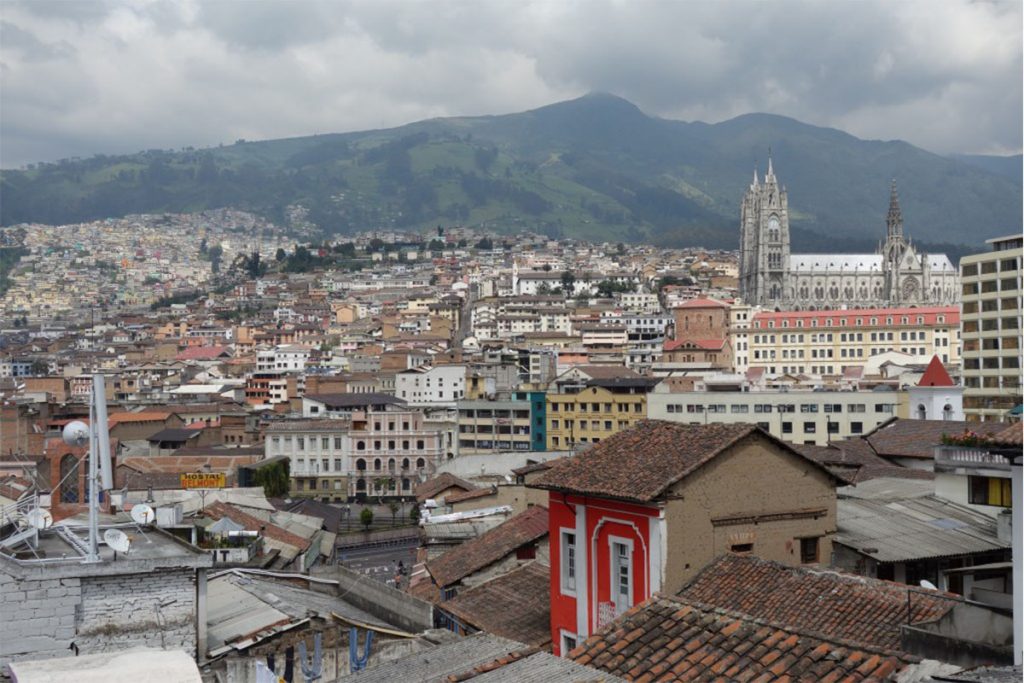
Lindo Mindo
Impatient de partir découvrir la nature équatorienne, nous avons quitté Quito pour Mindo, un petit village à 2h30 de la capitale réputé pour être un bel observatoire. Nous avons pu goûter au plaisir du “bird watching” comme ils disent par là-bas. Nous avons ainsi compris l’intérêt d’avoir des jumelles. Premier oubli de notre super packaging. Pour tous ceux qui prévoient de partir dans un pays où la nature est aussi belle qu’en Équateur, prenez-en de la graine et ramenez vos jumelles.
After three days, we wanted a taste of south american nature. We left Quito, and after a breathtaking two and a half hours of driving into the cloud forest, we arrived in Mindo. Mindo is a small tourist town well known for its bird watching. Here we discovered binoculars are useful, or at least how they would have been very useful. A note to anybody leaving to a country with such a rich and plentiful faune and flore bring binoculars.
Nous avons ainsi flâner cinq jours dans ce petit paradis touristique. Nous sommes restés au Rubby’s Hostel tenu par la très chaleureuse et indépendante Norman. Chambre privée avec balcon et hammac orienté sur la forêt de nuages : nous avons choisi le grand luxe pour la première étape de notre aventure.
We decided to do as little as possible in this tourist paradise. We stayed at Rubby’s Hostel which was run by the very warm and independent Norman. With a good deal for a private room with a balcony and hammock overlooking the cloud forest.
Afin de pimenter nos promenades nous nous sommes fixés comme but de trouver la cascade de Nambillo sans prendre la Tarabita, téléphérique douteux non approprié aux vertiges de Paul. Comme rien n’est indiqué en Equateur et que les cartes manquent grandement de précisions nous avons beaucoup marché sans succès. Nous ne sommes pas moins déçu car cette recherche obstinée nous a permis d’observer de nombreux oiseaux exotiques (Toucans, Colibri et autres oiseaux dont on taira le nom, faute de connaissance en ornithologie), tout en découvrant de magnifiques paysages sans rencontrer âmes qui vivent. Exceptées quelques vaches, nous étions les seuls aussi déterminés à marcher.
We would wake up early, pick a road, and walk down it as far as it went, or we could manage to go, and walk back the opposite direction. We had a one dollar map that was not drawn to scale nor with any sense of proportion, and had heard that there was a beautiful waterfall that we could walk to. Why would anyone, especially someone who does not appreciate heights, want to take a cable car across a valley? We never did find the waterfalls. We found all sorts of birds, other animals, and plants: toucans, hummingbirds, red and awkward chicken like birds, parakeets, snakes, orchids, flowers, wild raspberries, and cows. Most of the good hiking trails in Mindo are privately owned. Luckly, some nice gentleman, who had just woken up (oops,) let us use his private birdwatchers trail. We got lost, entered a luxury resort from their back trail, and surprised a maid. Who escorted us back onto the road. Except for the cows, we seemed to be the only people determined to walk everywhere.
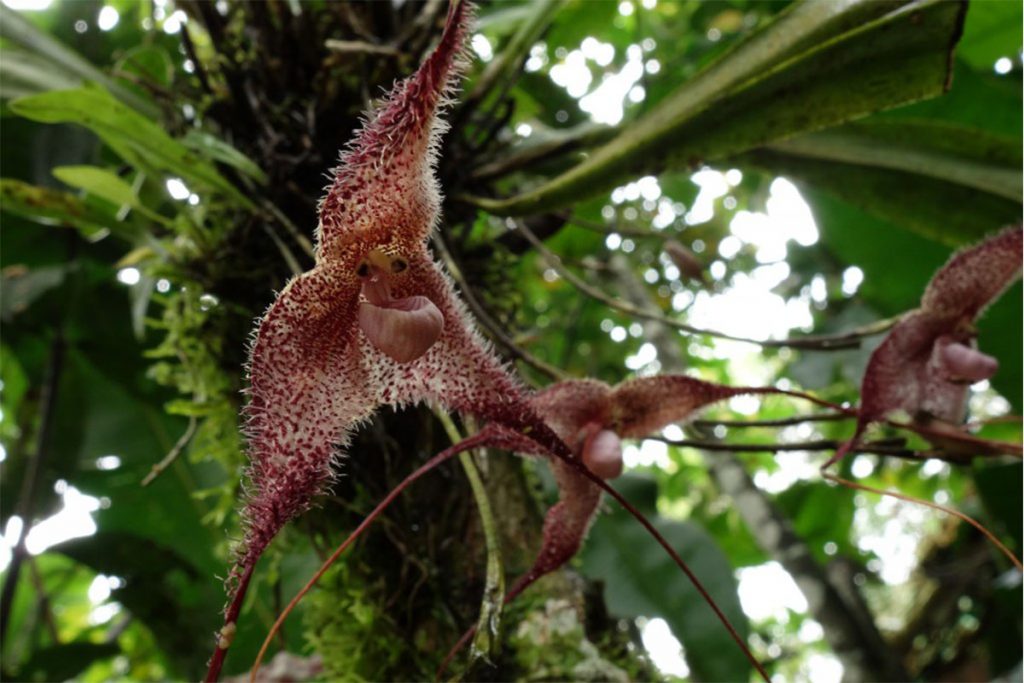
Un week-end chez les Tsachila
Après avoir passé quelques jours en Équateur, nous avons réalisé que nous sommes arrivés la semaine du carnaval. En Amérique du Sud, ils ne se contentent pas d’un simple mardi gras et de quelques enfants déguisés. Ils font la fête pendant cinq jours, les hôtels sont plein à craquer et tu peux être victime à tout moment d’une bataille d’eau, de mousse ou autres substances non-identifiées.
Upon arrival in Mindo, we were told that everything was booked for carnaval. We were going to have a hard time finding a place to stay in pretty much any hostel or hotel. In South America, they don’t just do ‘mardi gras’ and dress up funny and have a parade. They party for five days and fill up all the hotels. They throw water, spray foam and project other unidentified substances at family, friends and total strangers.
Afin d’augmenter nos chances de trouver un logement, nous avons décidé de passer notre week-end dans un endroit où on ne fête pas le carnaval. Nous avons rendu visite au peuple indigène Taschila dans la région de Santo Domingo de los Colorados. Nous sommes restés dans une réserve où vivent quatre familles luttant pour la sauvegarde de leur langue et de leur patrimoine (vêtement traditionnel, coupe de cheveux, connaissances des plantes medicinales, musique, agriculture, chasse et rituels chamaniques). Nous avons appris un peu de Tsafiqui : “Atchi tchoutchou” ce qui veut dire “va t’en le chien”; nous avons découvert quelques plantes médicinales et nous avons fait des tatouages temporaires. Je me suis endormi sur mon tatouage et je me suis retrouvée avec une trace sur le visage pendant 7 jours…
We decided to go somewhere where they didn’t celebrate carnaval. The indigenous tribes don’t celebrate carnaval, and not many people go to visit them during carnaval. So we went to El Pueblo near Santo Domingo de los Colorados to see the Tsachila. We stayed on a reserve where four families lived in a effort to preserve their language and traditions : weaving, hairdressing, medicinal plants, music, hunting, farming, and shamanistic rituals. We also learned how to say “atchi tchutchu,” which means “go away dog.” We also learned about a plant that when its clear juice is applied to your skin after about twelve hours it makes a blue temporary tattoo. It last over a week even if you accidentally go some on your face.
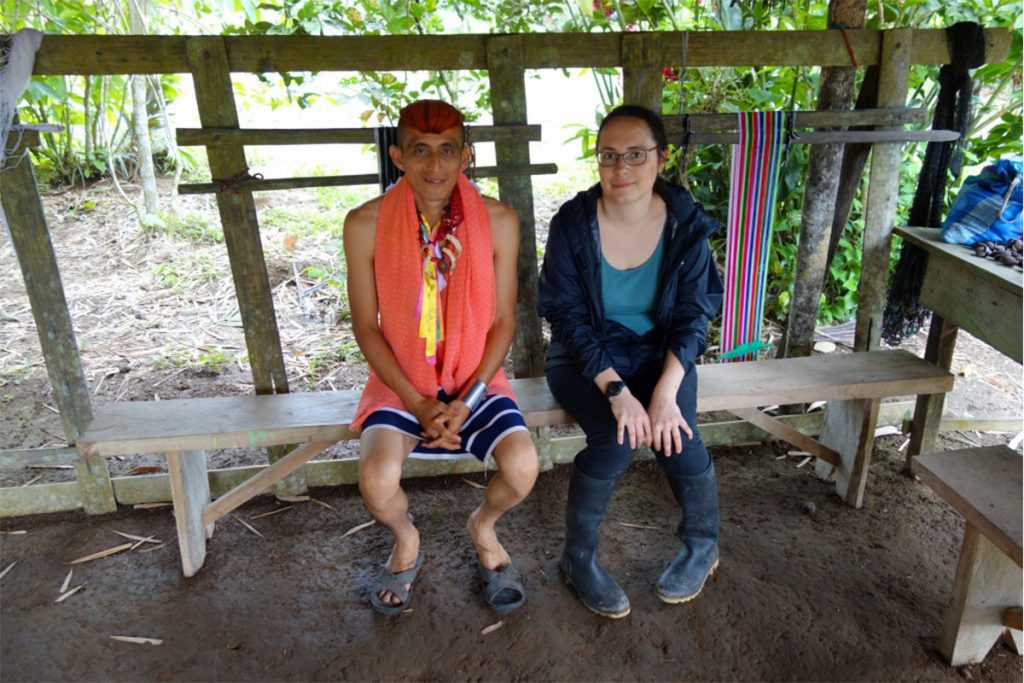
Playa y Costa à Mompiche
Pour arriver en forme dans les fermes et être de bon volontaire, nous avons décidé de nous reposer sur la côte dans la petite bourgade de Mompiche. Plage de sable noir, coup de soleil et baignade au milieu des vagues, une semaine agréable et reposante avant d’aller découvrir la forêt tropicale et ses petites bébêtes sympathiques.
We spent the last half of carnaval in Mompiche, a sleepy surf town. The beaches were made of black shinny sand, the sun was bright, the water was warm. It was perfect for relaxing before volunteering on our first farm in the near by tropical forest…
